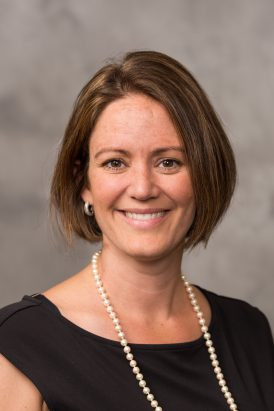The Age of the Pill: New Evidence on the Exceptionalism of the Late 20th-Century U.S.
Présenté par : Martha Bailey (University of Michigan) ; Discutant-e : à venir
Over the past fifty years, the U.S. has witnessed dramatic changes in childbearing, leading some to call this period the “Second Demographic Transition.” Yet the many of the features of the Second Demographic Transition do not appear exceptional in long-term, historical perspective. After summarizing this evidence, I lay out three underappreciated demographic features of the recent U.S.: (1) the realization of a two-child family and falling childlessness, (2) the disassociation of motherhood and marriage, and (3) the growing divergence in childbearing and marriage by mother’s education. Lastly, I examine the emerging literature in economics on the role of modern contraceptives in explaining these trends.
Martha Bailey

Martha Bailey is a Professor of Economics and a Research Professor at the Population Studies Center at the University of Michigan. She is also a Faculty Research Fellow at the National Bureau of Economic Research. Bailey received her B.A. from Agnes Scott College in 1997 and her Ph.D. from Vanderbilt University in 2005. Prior to joining the University of Michigan economics faculty, she was a scholar in the Robert Wood Johnson Health Policy Program. She has served on the editorial board at the Journal of Economic History and Demography and currently serves on the board of editors at the Journal of Economic Literature.
Bailey’s research focuses on issues in labor economics, demography and health in the United States within the long-run perspective of economic history. Her work has examined the implications of the diffusion of modern contraception for women’s childbearing, career decisions, and compensation and the shorter and longer-term effects of Great Society programs, including a co-edited book entitled the Legacies of the War on Poverty. Her research has won the IZA Prize for the Best Young Labor Economist, the Arthur H. Cole Prize for the best article in the Journal of Economic History, and the CESifo Distinguished Research Affiliate Award for Best Paper by an Economist under 35. Bailey’s work has recently appeared in the American Economic Review and Quarterly Journal of Economics and has been funded by the National Institutes of Health, the National Science Foundation, the Ford Foundation, and the Russell Sage Foundation. Bailey has also won several college-level awards for outstanding teaching, including most recently the 2017 John Dewey Teaching Award.
